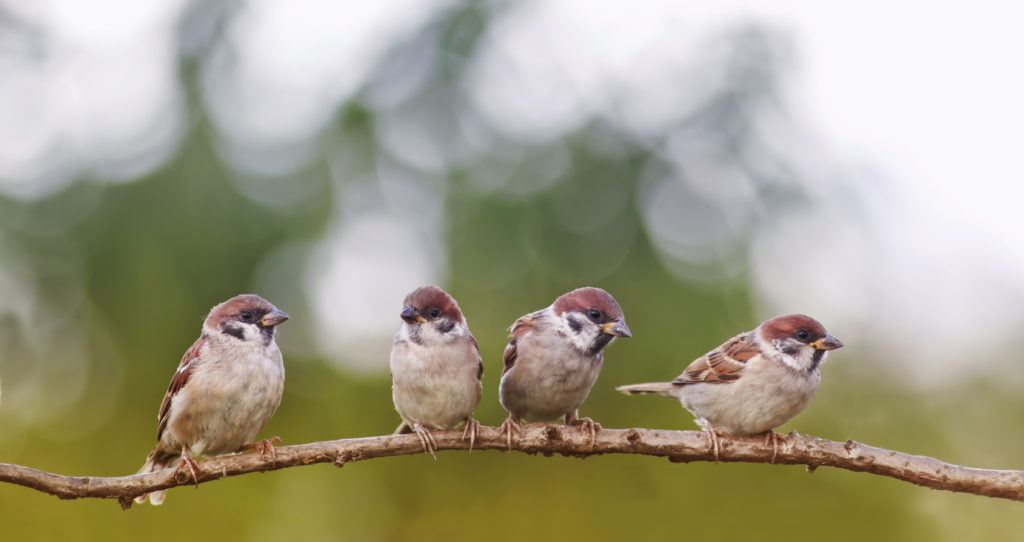Quick Hits
Daily brief research updates from the cognitive sciences

Waking up to an early morning chorus of birdsong is nice. No doubt about that. But the benefits could be much more significant than just a fleeting feeling of positivity (and followed by a groan to get out of bed by some).
Researchers at Kings College London have just reported on the results of a study that tracked people’s exposure to birdsong and the resulting mental health impact – with some very positive results.
Hammoud et al. tracked 1’292 participants over three years who completed an impressive 26’856 assessments. They used an app that asked them three times a time whether they could hear birdsong and then followed up with questions on mental health.
What did they find?
They found that seeing or hearing birds was associated with an improvement in wellbeing and that this can last up to eight hours. Not bad for a bit of birdsong. What’s more they also found that this also improved wellbeing in those suffering from depression.
This supports plenty of other research into the benefits of nature and specifically of just birdsong. I reported on the positive effects of biodiversity and birdsong here. But these researchers were also able to account for co-occurring other environmental factors such as seeing tress – we also know greenspace has a positive benefit – and found that birdsong alone could account for positive benefits.
So, that’s all good news – surprising and effective method to improve mental wellbeing – so open the windows and listen to the birds. It will do you good.

Andy Habermacher
Andy is author of leading brains Review, Neuroleadership, and multiple other books. He has been intensively involved in writing and research into neuroleadership and is considered one of Europe’s leading experts. He is also a well-known public speaker, speaking on the brain and human behaviour.
Andy is also a masters athlete (middle distance running) and competes regularly at international competitions (and holds a few national records in his age category).
References
Ryan Hammoud, Stefania Tognin, Lucie Burgess, Nicol Bergou, Michael Smythe, Johanna Gibbons, Neil Davidson, Alia Afifi, Ioannis Bakolis, Andrea Mechelli.
Smartphone-based ecological momentary assessment reveals mental health benefits of birdlife.
Scientific Reports, 2022; 12 (1)
DOI: 10.1038/s41598-022-20207-6
More Quick Hits
Being “Hangry” Really Is A Thing
Quick HitsDaily brief research updates from the cognitive sciences o, scientists have now proven that being “hangry” is real thing. What took them so long? Well, first of all things which seem intuitively right such as the weather making pain worse...
Reward Drives Aggressive Behaviour Against “Others”
Quick HitsDaily brief research updates from the cognitive sciences s vs. them is known as in-groups vs. out-groups in psychology. This is the well-known effect of people being loyal to their own groups and being competitive and often aggressive to...
Low Oxygen Impairs Decision-Making
Quick HitsDaily brief research updates from the cognitive sciences ast year I reported on how pollution and bad air in offices correlates with lower performance and productivity. Something business should take note of. A study out of the University...
The Brain Waves That Drive Social Behaviour
Quick HitsDaily brief research updates from the cognitive sciences have reported in other places on the social regions of the brain (for review see here). And this has indeed been the standard approach – try to identify the specific regions in the...
Being Mindful Improves Relationships With Co-Workers
Quick HitsDaily brief research updates from the cognitive sciences he topic of mindfulness has been a hot topic for a number of years now. This is not to be confused with meditation which is often lumped together with mindfulness – because they do...
Engaging Leadership Boosts Employee Engagement, and Team Effectiveness, and Resilience
Quick HitsDaily brief research updates from the cognitive sciences paper just out has looked again at leadership style and impacts on employee engagement and also various team effectiveness measures. Greta Mazzetti of the University of Bologna,...






